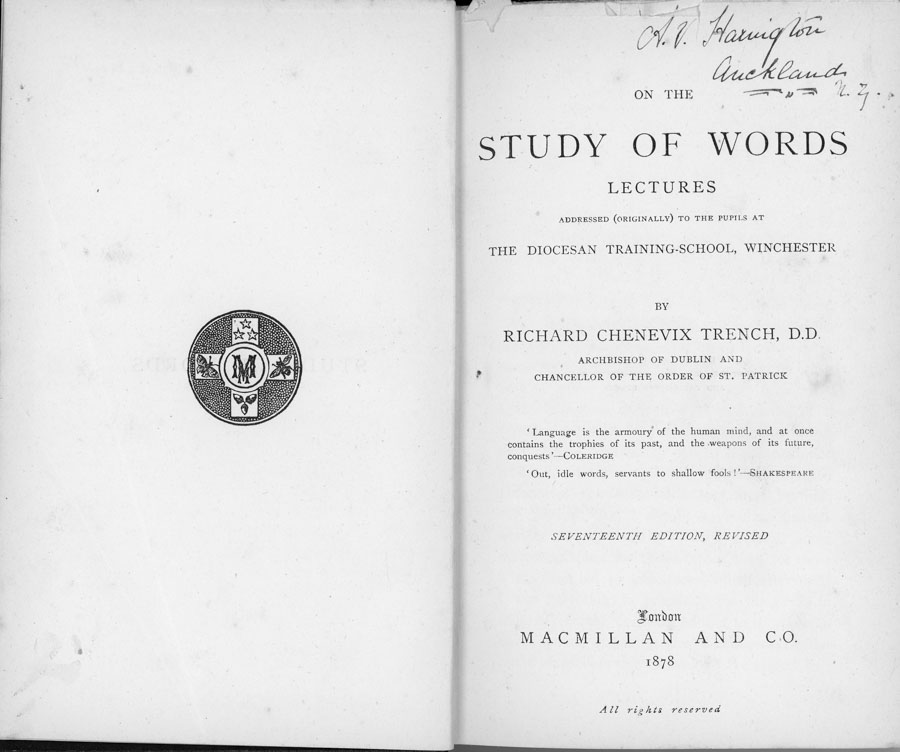Having had some bad experiences with drill bits recently, I was doing some research to figure out what sort of replacements I ought to buy. Reading over some hints published by a drill-bit manufacturer I was surprised by the statement that mistreating some high-speed steel bits could make them “lose their temper”.
The surprise at seeing that common expression used in a discussion about steel was quickly followed by equal surprise that I had never before realised where the expression had come from. To me, losing your temper has always been the same as “doing your block”, “flying off the handle”, “spitting the dummy” or any one of a number of similar expressions. It just means getting really cranky.
I knew you could temper steel, by some kind of heating and cooling process that made it tougher and more durable for heavy usage. And suddenly I realised that if tempered steel was pushed beyond certain limits it could “lose its temper” and bend, break or otherwise become less useful. So, applying the expression to a person, I could see that a well-tempered frame of mind was one which could withstand provocations without losing its even character. Losing your temper, then, makes you like the steel that bends or breaks: no longer even and capable of dealing with a stressful situation. Obviously, a bad-tempered person is a person whose character is brittle or weak, like poor-quality steel. For all I know, most people probably already realised that parallel, but it was new to me.
I’ve long been fascinated by words and their origins. On a trip to Sweden a few years ago I was surprised on an almost daily basis by seeing and hearing words in Swedish that made me re-think words I was familiar with in English. “Haven”, was one example. In Scandinavia you often see the suffix “habn”, “havn”, or similar on words and place names, always in reference to harbours. And when I went to Gothenburg and found the people there pronounced the city’s name as “Yottaburi”, I suddenly thought of Glastonbury, and Canterbury and all the other “buries” in the places where the Vikings went.
Sea-going expressions
As a reader of books about the days of sailing ships, I often find familiar expressions in old sea stories, used in their original contexts. As a matter of fact, English is full of sea-related expressions. If I say I am “taken aback” by some event, that’s a direct lift from the terrible experience in a square-rigged ship of getting on the wrong side of the wind. Being taken aback in a square-rigger was a very nasty thing. Also “pooped”. To say I’m pooped these days means I’m utterly done in, probably from working too hard. Being pooped in the sailing ship days meant being crushed under by a big wave coming from behind and smashing down on to the “poop” of the ship.
Getting “under weigh” meant your ship had weighed (hauled in) its anchor and was leaving port. “Taking a different tack” meant turning the ship about. “Making headway”. “Giving leeway”. “Battening down the hatches”. “Giving a wide berth”. “Learning the ropes”. They’re all sailing ship sayings that we use all the time, probably with never a thought of the sea.

One of my favourite books is a little volume, published in 1878, called On the Study of Words, by a clergyman and teacher named Richard Chenevix Trench. It’s necessary to make allowance for a fair bit of heavy duty Christian piety and some chapters that are strictly biblical, but even with that, it’s a book full of lovely revelations about the origins of words. The book is really a collection of lectures, all of them aimed at making people appreciate words and language as “fossil poetry” and “fossil history”.
Here’s a typical general quote from his book: If, having these treasures of wisdom and knowledge lying round about us, so far more precious than mines of Californian gold, we determine that we will make what portion of them we can our own, that we will ask the words which we use to give an account of themselves, to say whence they are, and whither they tend. Then shall we often rub off the dust and rust from what seemed to us but a common token, which as such we have taken and given a thousand times; but which now we shall perceive to be a precious coin . . .”
Trench talks about names of places, of animals, of tribes of people, and of flowers. I was surprised to learn that the word “daisy” is a straightforward simplification of “day’s eye”.
Opening the book more or less at random now I find that the word “tinsel” came from the French “etincelle” and while it might once have been at home describing cloth interwoven with silver and gold, it has evolved to now signify something showy but worthless.
The evolution of words is as fascinating as their origins. “Idiot”, for example, was a Greek word that simply meant a private person, in the sense of a person not holding any kind of public office. Because of a feeling that people owed public involvement as a duty to their community, the word gradually came to have negative connotations; first to describe somebody who was ill-informed about community affairs of importance, then somebody with a deficient intellect.
Words are the tools and the environment of thought, and the richer the vocabulary, the more subtle and precise the capabilities of thought and communication. This was certainly the point that George Orwell was making in Nineteen Eighty Four, when the government of Oceania strove – through the word-poor language of Newspeak – to limit political opposition by curtailing the capacity for thought.
Language is one of the most fascinating characteristics of humanity, I think, and the history of your own language is a topic well worth drilling into. But I’d suggest you take it slowly, if you start. You don’t want to overheat and lose your temper.



